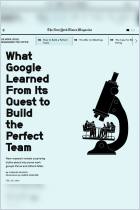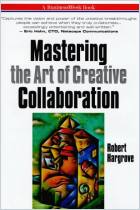When you want results, throw a bunch of overachievers into a room together: Eventually, one will emerge – bruised and exhausted, but victorious – grasping the best idea aloft in a bloodied hand. That conventional wisdom pervades education, politics and business, spurred by the belief that if everyone competes fiercely, eventually the best idea will win. Alas, the reality isn’t so simple, says entrepreneur Margaret Heffernan, and she’s got the research and real-world results to prove it.
If you want to create an ultra-productive group, don’t populate it exclusively with high achievers.
In an attempt to study productivity among chickens, biologist William Muir measured the number of eggs a flock of chickens produced over a given period. Muir started with a flock of average chickens. If a hen demonstrated a higher capacity for laying eggs, Muir removed it from the average group and placed it among a group of “super chickens.” He continued this process for six generations. At the end of his experiment, the average flock of hens was still laying at a healthy, regular rate, but the super flock wasn’t doing so well. Not only were the hens laying fewer eggs but they’d turned on one another, fighting to the death.
Society applies the super-flock strategy to education, business and politics, assuming that the best outcome is inevitable if you put a group of high achievers together in a room. Yet a collective of high-achieving humans often behaves similarly to a ...
Margaret Heffernan is an entrepreneur, CEO and author. She’s the Professor of Practice at the University of Bath School of Management. Her books include Willful Blindness: Why We Ignore the Obvious at our Peril; The Naked Truth: A Working Woman’s Manifesto About Business and What Really Matters; and Beyond Measure: The Big Impact of Small Changes.














Comment on this summary